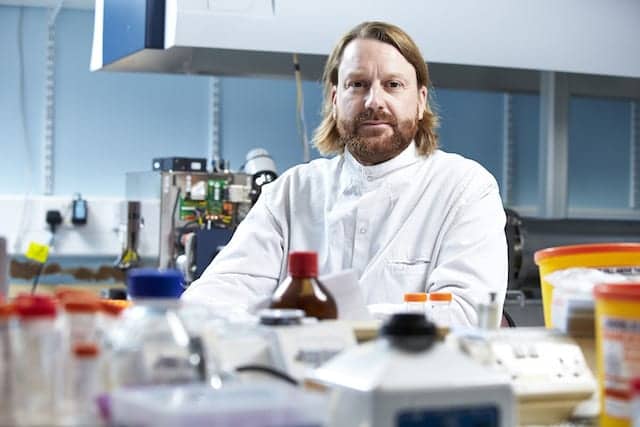Affymetrix Inc, Santa Clara, Calif, has received a grant from Innovate UK (IUK) to investigate the health and economic value of the company’s OncoScan formalin-fixed, paraffin-embedded assay kit for noninvasive genomic profiling of bladder cancer from urine samples.
With the grant, Affymetrix will develop a health and economic outcomes assessment for replacing surveillance cystoscopies with noninvasive genomic profiling from urinary cell-free DNA (cfDNA) using the OncoScan assay. The company hopes to demonstrate that identifying genomic changes in a noninvasive fashion can improve patient well-being and deliver significant cost savings. Patients with non-muscle invasive bladder cancer (NMIBC) generally have greater than 90% survival rates over 5 years, but a high recurrence rate and significant risk of progression to muscle invasive bladder cancer (MIBC) require continual monitoring.
The successful grant application was supported by research led by Richard Bryan, PhD, senior research fellow at the University of Birmingham; and an IUK stratified medicine innovation platform grant led by Mike Griffiths, PhD, director of the West Midlands regional genetics laboratory, Birmingham, UK.
The research directed by Bryan and Griffiths has demonstrated that key genomic aberrations evident in bladder tumor biopsy material can also be detected in urinary cfDNA with the OncoScan assay, even for very early stage NMIBC tumors.1 This work, examining a cohort of 23 patients with confirmed urothelial bladder cancer (UBC), showed that cfDNA from UBC patients is highly representative of the tumor genome and has a consistently higher tumor burden than DNA from exfoliated whole cells found in urine cell pellets, thereby allowing greater detection of important tumor-specific biomarkers.
“Although the majority of noninvasive tests for bladder cancer currently in use or being researched seem to rely upon the DNA extracted from the cells found in urine, we have shown that the cell-free DNA from the remainder of the urine is much more representative of the actual tumor, and so potentially more accurate,” says Bryan. “This opens up so many new and unexplored avenues for the millions of bladder cancer patients worldwide who are waiting for a revolution in their treatment and follow-up.”
Following a favorable assessment of likely outcomes for the UK’s National Health Service, Affymetrix will seek additional grant funding to test the OncoScan assay’s clinical performance compared to cystoscopy, and to assess its ability to stratify patients who are likely to progress to MIBC.
“We are pleased to have the opportunity to demonstrate the cost effectiveness and utility of the OncoScan platform,” says Andy Last, chief operating officer at Affymetrix. “The promise of a noninvasive, comprehensive, whole-genome profile offers the potential to advance the way bladder cancer is monitored and treated, as well as greatly reduce the monitoring burden for patients.”
REFERENCE
- Togneri FS, Ward DG, Foster JM, et al. Genomic complexity of urothelial bladder cancer revealed in urinary cfDNA. Eur J Human Genet. 2016; published online in advance, January 13, 2016; doi: 10.1038/ejhg.2015.281.






